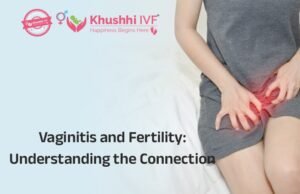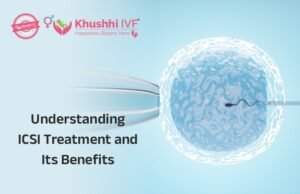If you want to know the answer to what is the difference between IUI and IVF, then let us help you with it. Both are procedures for conceiving children for couples facing infertility issues. However, there is a considerable difference between the two. While some couples may just need IUI, others may have to go through IVF, which is a rather lengthy procedure. If you are a couple facing infertility due to any known or unknown reasons, this article will help make an informed decision about the ideal route to choose for pregnancy.
What does IUI mean?
IUI (intrauterine insemination) or artificial insemination is a non-invasive, non-surgical, simple medical procedure that requires the health expert to inject the sperm of a male partner or donor into the uterus of a woman who wants to conceive. IUI increases the chances of successful pregnancy by making sure that insemination is done during ovulation. Being more natural, IUI is best for people dealing with issues like PCOS, anovulation, sperm health issues, mild male-factor infertility, unexplained infertility, same-sex female couples, and single mothers who want to conceive.
The process involves placing the sperm higher into the uterine cavity so that the chances of it reaching the fallopian tube increase. By shortening the distance, the chances of sperm reaching the egg becomes much higher. This eventually increases the chances of egg fertilization and pregnancy.
Additional Read:
What is IUI Treatment? A Detailed Breakdown
What does IVF mean?
IVF (In-Vitro Fertilization) is a step-by-step longer process in which more than one egg is removed from the ovaries, and fertilized in a laboratory to form an embryo, which is then inserted into the uterus of the woman who wants to conceive. Here fertilization happens outside the human body, in a lab that has a much regulated environment. Considered the best Assisted Reproductive Technology (ART), it is more invasive than IUI and is preferred by people who have failed multiple infertility treatments.
It is a common treatment for couples facing known or unexplained infertility issues, blocked fallopian tubes, poor egg quality, genetic disorders, etc. In addition, it is an excellent option for severe male infertility where there are issues of low sperm count, poor sperm health, and gay couples who want to become parents. As this one has more steps and demands continuous medical attention, it is more expensive than IUI.
What is the difference between IUI and IVF?
Process
Breaking down the IUI process
IUI deals with monitoring the patient’s menstrual cycle for a period of the first two weeks. Here, the fertility expert may or may not prescribe medication. If the natural cycle is good and produces an egg, then that is the best case. In case of difficulty in egg production, the healthcare expert will give medicines to stimulate ovulation.
Now, during ovulation, the egg is in the fallopian tube. It is here when the fertility doctor inserts sperm from your partner or donor into the uterus through a thin catheter. Sperm is first processed through a process called washing which removes weak, unhealthy ones. Finally, a healthy sperm is inserted into the uterus. If everything goes well within the body and there is luck, then sperm will reach an egg and will fertilize it. A fertilized egg called an embryo when attached to the uterine wall results in a successful pregnancy.
Breaking down the IVF process
In IVF, there is an elaborate, stepwise procedure that includes ovarian stimulation, egg retrieval, egg fertilization, embryo culture, and embryo transfer.
Here, the doctor focuses on ovarian stimulation through injectable hormones during the first 8-12 days of the menstrual cycle. The idea is to generate more than one mature egg as possible and is monitored through close supervision. Once the eggs are mature, they are retrieved from the ovaries through a minor surgical process assisted by light anesthesia.
Once the egg is retrieved, the male partner or donor provides a semen sample. The sperm goes through a washing procedure to maintain healthy sperm for the next step. The sperm is mixed with the egg in a dish to fertilize the egg naturally. If natural fertilization is difficult, fertility experts opt for intracytoplasmic sperm injection or ICSI, which is the process of injecting a single sperm into an egg. The doctor decides on the best of the two methods by monitoring the individual case.
The eggs are then monitored by an embryologist for at least five days to check the proper formation of embryos. Once the embryos are formed, one or more of them are surgically inserted into the uterus. The embryo then connects with the lining of the uterus resulting in a successful pregnancy. Detection of pregnancy is checked through ultrasounds and blood tests. Doctors also prefer to freeze the embryo for future use in case the couple chooses a second pregnancy through IVF or if the first attempt fails.
Which is more successful – IUI or IVF?
Technically speaking, IVF has a higher success rate than IUI. However, the eventual success i.e. pregnancy depends on many factors including the overall health of both partners. Therefore, considering just numbers does not help you to make a precise decision.
IUI Success rate
As per fertility experts, the monthly success rate of IUI is 15 to 20%. When the patient goes through four to five IUI rounds, the cumulative success ratio increases to 40-50%. Simply put, 1 out of 5 couples end up in a successful pregnancy. And others need to opt for IVF.
IVF Success rate
The success of IVF depends on factors like the age of the wanting-to-be mother, ovarian reserve, previous pregnancies, the cause of infertility, and more.
A single cycle of IVF gives around 40 to 50% results, which may increase with multiple cycles. Many couples require two to three cycles of IVF to get pregnant.
Cost – What is the difference between IUI and IVF cost?
Certainly, IUI is way less expensive than IVF. IUI is also a more natural way and does not need surgical procedures. IVF on the other hand is a complex, elaborate process with multiple steps and therefore, costs much more than IUI.
A general estimated cost of IUI in India is 10,000 to 15,000 INR per natural cycle while IVF can cost anywhere between 90,000 and 3,00,000 INR.
Risks associated with IUI and IVF
Both IUI and IVF are on the lower side of potential risk factors except the side effects caused by infertility drugs and hormonal medications. Some of the side effects include irritation or swelling at the site of injection. Around 15% of women show signs of ovarian cysts which get resolved naturally after the IVF cycle.
Another drawback is the chance of multiple births. While most assume that multiple births are common in IVF, it is quite the other way around. As per data, only 1% of IVF patients give multiple births after a single embryo transfer. If fertility experts have transferred more than one embryo, then they may result in multiple births.
IUI medications result in multiples. For example, using letrozole results in 1-13% chances of multiple births, Clomid 5 to 9%, and gonadotropin injections result in 32% chances of multiples.
Conclusion
Going for IUI or IVF is a decision based on various factors. Only an expert, experienced fertility doctor can suggest the most appropriate fertility treatment for you. While IUI is a simple process, IVF has more complexities and guaranteed results. Couples need to discuss details with a fertility expert to figure out what is best for them.
Khushhi IVF is a fertility clinic offering IUI and IVF treatments. We have a high success ratio of patients getting pregnant. We would be happy to help all our patients. If you are a couple facing infertility problems, then we are ready to help. Feel free to connect for a detailed discussion!





